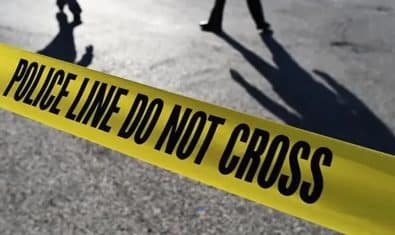The next generation of Pakistanis, born in 2020 onward will most likely never meet a person who participated in the Pakistan Movement. They will be deprived of listening to their elders/grandparents telling the stories of brutality, hardships and the migration to Pakistan. There are histories, films, and books about this great event, but the stories and experiences of ordinary people who lived through this period are not as thoroughly recorded they should have been. Taking in to consideration that life expectancy for a person is sixty-three years in our country, many who were ten years or older in 1947 have already passed away. Their stories are now lost to future generations. There are still about six million Pakistanis who were about eight years old when Pakistan was established and about 1.5 million Pakistanis who were about 18 years of age. Considering every day thousands of Pakistanis who experienced the Pakistan movement are leaving this world with their experiences unrecorded, there is an urgent need to record their experiences and observations.
Keeping this in mind, The Citizens Archive of Pakistan initiated the Oral History Project. The Citizens Archive of Pakistan is a non-profit organization founded in 2007 by ten board members which include renown filmmaker Sharmeen Obaid-Chinoy, Photographer Amean J., Minal Rahimtoola and Durriya Kazi. The aim of the organization is to ultimately set up the Living History Museum of Pakistan, which will preserve our history and culture in a wide variety of new media and serve as an interactive museum for future generations.
In order to show future generations the difficulties and sacrifices our elders gave for the creation of Pakistan, first hand accounts and first person testimonials are very important. Thus the Oral History Project came into being, which will provide audio visual aide and interaction to present the details of history.
The project was launched on June 16th, 2008. The aim is to collect testimonials from the people who participated in the Pakistan Movement and witnessed,experienced and ultimate shaped our history. With time, it aims to grow and will broaden to include stories spanning six decades and continuing. For the initial part, it is focused on pre-1947 era especially. Already, astonishing tales from the time have been narrated on tape for permanent collection into the archives.
[youtube]http://www.youtube.com/watch?v=eEbbEcXcnUg[/youtube]
[youtube]http://www.youtube.com/watch?v=RO5B0h8nSx0[/youtube]
What Can You Do?
You can nominate an interviewee for the Citizen’s Archive to interview. If you know anybody who played a vital role in the movement, or even witnessed it you can nominate him and The Citizen’s Archive will try its best to conduct the interview when available.
If you know someone, request them to spare some time for you to interview them. You can donate an interview by conducting it yourself as well. You can send photographs,posters or diaries and other media from the time for preservation as well.
How to Interview
(from http://yespakistan.com/forpakistan/recoralhistory.asp)
Preparing questions
Work out how to ask the essential questions.
Use plain words and avoid suggesting the answers. Rather than,
“I suppose you must have had a very difficult travel during the Pakistan days?”, ask “Can you describe your coming across the Pakistani border?”
You will need some questions that encourage precise answers: “Where did you move to next?”
But you also need others that are open, inviting descriptions, comments, opinions:
“How did you feel about that?”
“What sort of person was she?”
“Can you describe the house you lived in?”
“Why did you decide to support Pakistan Movement instead of India?”
There are some points to cover in every interview: date, place of birth, what their parents’ and their own main jobs were, etc. Whatever the topic, it usually helps to get the interviewee talking if you begin with their earlier life: family background, grandparents, parents, brothers and sisters (including topics such as discipline); childhood home (housework, chores, mealtimes), leisure (street games, gangs, sport, clubs, books, weekends, holidays, festivals), politics and religion, schooling (key teachers, friends, favorite subjects), early relationships, working life (first job, a typical working day, promotion, pranks and initiation, trade unions and professional organizations); and finally later family life (marriage, divorce, children, homes, money, neighbors, social life, hopes). Most people find it easier to remember their life in chronological order; it can sometimes take you two or three sessions to record a full life story.
The best interviews flow naturally and are not rehearsed. Don’t over-prepare don’t use a script. Tape recorded stories should be lively, spontaneous and vivid. Allow people to be themselves.
Sample Questions
- Where were you born? City?
- Tell us a bit about your parents and your family?
- Did you have some non-Muslim neighbors?
- When did you first hear about the idea of creating a country called Pakistan?
- Who was most active in your family in the Pakistan movement?
- Did you hear Quaid e Azam’s speech about Pakistan?
- What was your feeling at that time?
- How did your non-Muslim neighbors feel about it?
- What were the major problems Muslims faced when they demanded for an independent Muslim nation?
- Did you migrate to Pakistan after its establishment?
- How was this trip to Pakistan like?
- What did you see while migrating towards Pakistan?
- How was your welcome in Pakistan?
- What difficulties did you face while settling in Pakistan?
- Do you meet any leader of Pakistan movement?
- Did you attend any rally where Quaid e Azam or any other leader spoke?
- Do you remember any slogans from those days?
- Tell us about your relatives or other friends who might have some stories of their participation in the Pakistan movement.
- Did your children and family flourish in Pakistan, economically speaking?
- What do you dream and wish for Pakistan?
- Is there any message you like to record for Pakistanis?
Tips for recording oral histories
1. Bring a tape recorder, pen and paper, or both. If you want to use a tape recorder, make sure you get prior permission from the person you’re interviewing. You may want to take a few notes even if you use a tape recorder, perhaps to get the correct spellings of places and people’s names. If you use a tape recorder, be sure to test the recorder as well as the tape to make sure that each is working.
2. If you don’t have a tape recorder, but have a video recorder, use that instead for audio as well as video.
3. Make sure you record the date and location of the interview, as well as the name of the interviewer and the interviewee.
4. Ask questions to start things off, but don’t be afraid to let the person you’re interviewing talk “off the subject.” You may get some of the best stories this way. If they really start rambling, gently steer them back to your questions.
5. Don’t push for answers. If you’re asking questions that seem to make the person uncomfortable, ask if they want to continue or if they would rather talk about something else.
6. If you ask “when” something happened, the answer will often be “I don’t know, ” because the individual doesn’t recall the exact date or year. Instead of asking “when,” ask the question in relation to another event. For example, did an event take place before or after the individual got married, or before or after the individual’s parents died? You can also begin the question with “About how old were you when….” Using these techniques, you’re more likely to get answers.
7. If you have any old pictures or other items that you have questions about, bring them along. You may get answers to your questions, and you will probably hear some good stories, too.
8. Keep the session relatively short, no more than one or two hours. Recording an oral history should be fun, not hard work. You can schedule another session at a later date if you want to continue recording the oral history.
9. Get their permission in writing to share the interview with the library or any project about Pakistan movement.
After the Interview:
1. Write as much information as you can on the tape box–particularly the tape number–the interviewee’s name and date of birth, the place and date of the interview, your own name and the number of tapes you used.
2. Make a back up copy for yourself. Remember that digital files on a CD last longer than traditional tape.
4. Write a synopsis of the interview which briefly lists in order all the main themes, topics and stories discussed. This will come in useful of you want to use the interview in an exhibition, or book, or radio program.

























Wow! Thank you! I always wanted to write in my site something like that. Can I take part of your post to my Website ?